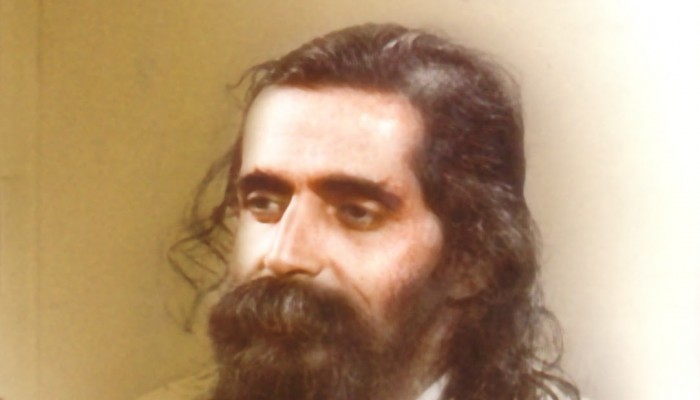Guruji Golwalkar’s Exposition on the Challenge of the Times
- In Society
- 10:31 AM, Aug 27, 2020
- Niraj Pareek
Note: This essay is the third part in the series of articles based on Guruji's Bunch of Thoughts. Here is the link to second part-https://myind.net/Home/viewArticle/guruji-golwalkars-reflections-on-the-final-refuge-for-mankind
This talk delivered on 2nd November 1949, delves on the choices that our nation had to make at the time of Independence between Capitalism and Communism. Born as a reaction to the tyranny of Monarchy in the European countries, Democracy was later criticized for the evil of capitalism by the theorist in that age. Communism, which was born out of reaction to Capitalism was propagated as the answer to all evils. The example of Russia has been explained in detail as to how the theory of Communism failed the people in such a miserable way that today there is not even a single successful example that can be credited to Communism.
The underlying fault in both the above ‘isms’ is that both the concepts have stemmed from materialism and the wrong concept of equality. On the other hand, the example of our Dharmik philosophy has been talked about as the solution that has been the bedrock of our civilization. Guruji has explained the concept beautifully by giving the example of Maharishi Dadhichi and the example of his sacrifice for the greater good of the society.
There are two major patterns of social set-up which are in vogue in the modern world. One, the older of the two, is called Democracy. It originated as a reaction to the unbridled monarchy in the countries of Europe. The individual was then a mere serf, devoid of all initiative and freedom, just a toy in the hands of ‘divine’ kings. People rose in revolt, overthrew ‘the divine right of kingship’ and smashed the power of monarchy for all times. The inspiring slogan of ‘liberty, equality, and fraternity’ was on the lips of everybody.
But, by about the same time, the age of machine also had set in. Industries had begun to flourish. Millions of labourers were employed in those engines of mass production. The horrible conditions of the labourers – men, women and even children – working in those factories defied all description. They were now groaning under the heels of tyrants in place of the old. It was at this stage that Communism came up as a reaction against the new tyranny of Capitalism. Communism started with the assumption that industrial revolution was bound to result in dire economic disparity, giving rise to two classes, the ‘haves’ (Capitalists) and the ‘have-nots’ (Proletariat, i.e., working class). Thus, it was prophesized that the industrialization of a country, greater the economic disparity and therefore, greater the class conflict and sooner the ushering in of the rule of the proletariat.
‘Out of all countries it was Russia, industrially a most backward country, that Communist revolution registered its first success. Even to this day countries like America, England and Germany which are in the forefront of industrial progress – in fact, where the industrial revolution first took shape – have not shown any signs of advancing towards Communism.’ On the contrary, it was China, another industrially backward country, which has become Communist in recent years. Thus the claim of historical inevitability of Communism based on its materialistic interpretation of human history has been shattered on the rock of hard realities.
Secondly, what is the condition of the common mass of people in that promised land of freedom, peace and plenty? It is all too well known that the ‘dictatorship of the proletariat’ has been reduced to the dictatorship of the dictator of the dictatorial party, i.e., the Communist in these countries.
The Promise and the Performance
Take the example of Russia, the first great country which made the experiment in a thorough-going manner. They liquidated all private property, all the industrialists, and took over all industries in their own hands. On the agricultural front, they liquidated all the landlords and the peasants, grouped them into communes and collective farms.
Has Russia answered this test? At one point of time, it was the biggest wheat-producing country in the world. In proportion, the population is small and so a smaller number of mouths to feed. In spite of all these, in order to feed the resident citizens of Russia, the Russian government has to actually import wheat and other edibles from other countries. A more convincing proof of the utter defeat of Communism need not be called for now!
On the other hand, those countries where Democracy was born with a promise of ‘absolute individualism’ have also gone back upon their original stand. Having seen the tragic results of the unrestrained ‘equality of opportunity’ and of ‘freedom of the individual’, they were forced to undertake drastic measures to curtail in practice those theoretical concepts in the interest of common social good. In fact, that is how they were able to avoid revolution and maintain their democratic structure.
We thus find that both the above theories, Democracy and Communism, have two things in common, i.e., both were born as reactions to the previous order and both have had to rescind from their original stand and stand and forced to move towards each other – Democracy from its individualism towards collectivism and Communism from its collectivism towards individualism.
Stemming from the Same Root
According to the western thought – from which both the concepts of Democracy and Communism took birth – the life of man for all practical purposes is limited to the physical plane. The human being is just a bundle of physical wants. As the individual was only a physical entity goaded entirely by those physical desires, there was no reason for him to look upon society as anything more than an instrument to serve his needs. But a society made up of such individuals exclusively dedicated to their own selfish interests could not be expected to endure even for a day. Society, for its sustenance, demands a spirit of sacrifice on the part of its constituents.
But to identify man with a mere bundle of material desires is to equate him with an animal. If man is just an animal, why should he lead an amicable and ordered life? Materialism cannot explain why the will to sacrifice for others, spirit of comradeship in misery, should at all rise in the mind of man. But all through the history of mankind we come across such persons who have sacrificed their lives for others willingly, lovingly and smilingly. There is the story of Dadhichi in our ancient literature who volunteered to offer his bones to be made into a weapon to destroy the demon Vrittrasura. He was a seer living in a forest. As an individual he desired nothing. Then, what made him to sacrifice himself?
The Real Basis
There is only one explanation. And that is, there is one common Living Reality in all of us which furnishes the common inner bond. Our philosophy calls it Atma. We love and serve one another not because of the external relations, but because of the community of that Atma.
According to our philosophy, the very projection of the universe is due to a disturbance in the equilibrium of its three attributes – sattva, rajas and tamas – and if there is a ‘gunasamya’, perfect balance of the three attributes, then the universe will dissolve back to the un-manifest state. Thus disparity is an indivisible part of nature and we have to live with it. Our efforts should be only to keep it in limits and take away the sting born out of it.
Democracy, even at this advanced stage is in the Western countries, is after all the rule by a few who are well versed in the art of politics and capable of winning the masses to their line. The concept of democracy as being ‘by the people’ and ‘of the people’, meaning that all are equal shares in the political administration, is, to a very large extent, only a myth in practice.
Communism, too has completely failed to realize any of its declared concepts of equality. It had envisaged that after the establishment of the dictatorship of proletariat all will have food and other necessities of life satisfied. Then there will be no room for mutual conflict thus obviating the necessity for a central authority. According to Communism, this is the highest state of equality that man can conceive of.
Mistaking Means for Ends
Our philosophy, on the other hand, has pictured the highest state of society, known as the virtue of ‘Dharma’. Dharma is the universal code of right conduct that awakens the Common Inner Bond, restrains selfishness, and keeps the people together in that harmonious state even without external authority. And it is dharma that is the distinguishing feature of human life.
The essential point, therefore, is moulding of individuals after the real image of man imbued with the sublime principles of innate oneness and harmony, i.e., of dharma. Indeed, a system works ill or well according as the men who work it out are bad or good. That is why, in the absence of men inspired with the right spirit, Democracy deteriorates into ’mediocracy’ and is often reduced to ‘mobocracy’. The tragedy of the various theories and ‘isms’ propounded by the West is that they were taken to be the ends in themselves to the utter neglect of building the quality of man.
This is the reason why in our national tradition, we did not bother much about the external form of government but concentrated upon moulding of man as the chief guiding factor in all our systems. Many forms were tried here right from republic to monarchy. And we find that monarchy, which bred such tyranny and gave rise to bloody revolutions in the West, was found to be a highly beneficial institution continuing for thousands of years showering peace and prosperity on the whole of our people, with the spirit of freedom alive in every sphere of life.
आहर्निद्रभयमैथुनं च सामान्यमेतत्पशुभिर्नराणाम ।
धर्मो हि तेषामधिको विशेषो धर्मेण हीनाः पशुभिः समानाः ।।
(Food, sleep, fear and lust are common to both animal and man. The special attribute of man is dharma; without it he is no better than an animal).
Image Credits: Ennapadam Panchajanya







Comments